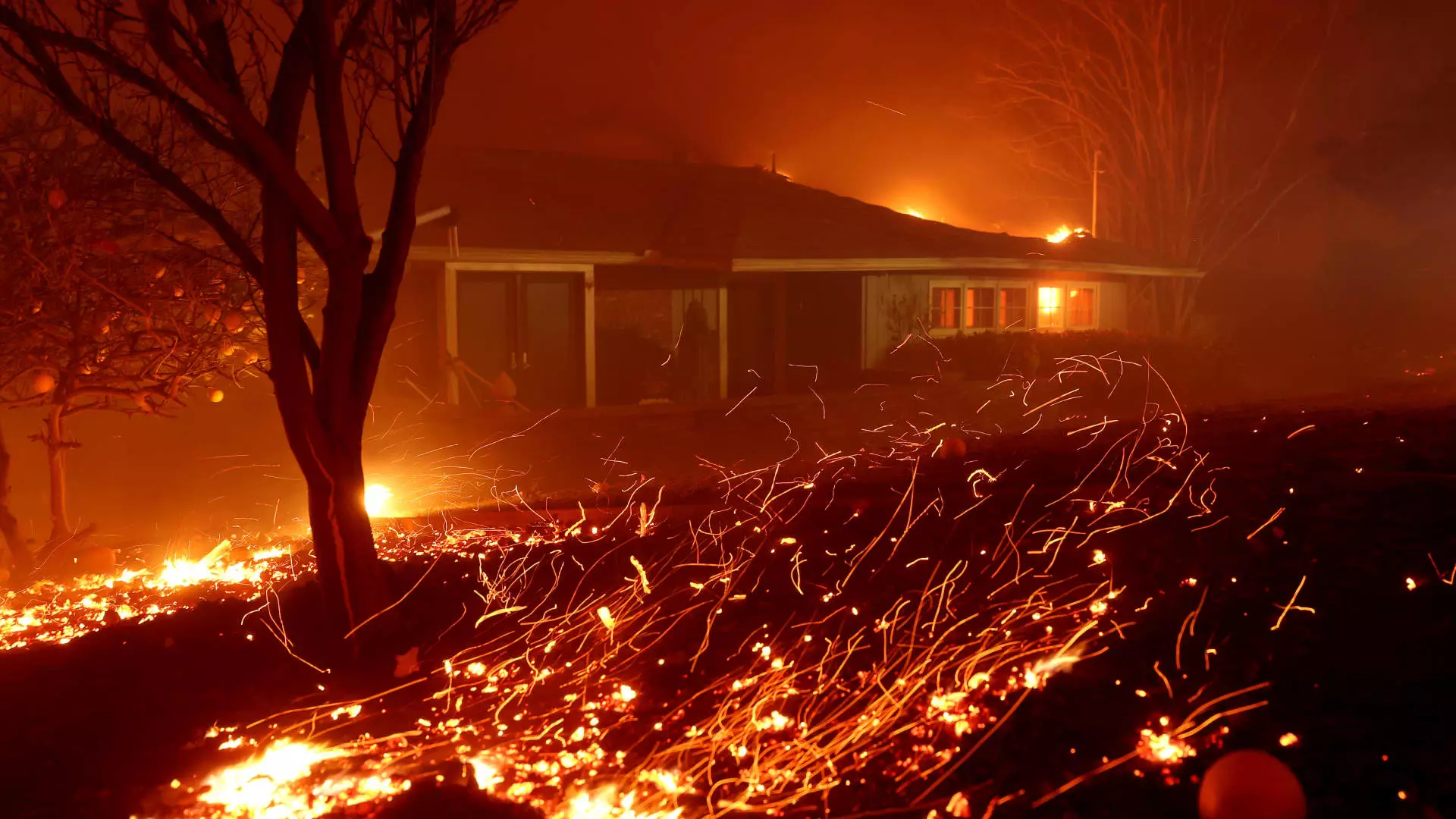The Impact of Climate Change on Real Estate: An Urgent Crisis

In recent years, the conversation surrounding climate change has transitioned from abstract warnings to a visceral reality that is reshaping various sectors, particularly real estate. The recent wildfires in Los Angeles serve as a stark reminder of the urgent implications of climate risks on property values and the broader economy. Experts note that the repercussions of these disasters extend far beyond immediate destruction; they fundamentally alter the landscape of the real estate market.
One of the critical aspects of how climate change impacts real estate is through insurance costs. As societies grapple with increasingly severe weather phenomena, the insurance industry is beginning to respond with heightened premiums. While it remains difficult to quantify the full financial fallout from recent wildfires, projections indicate a looming upward shift in insurance prices, which could average 25% over the next three decades. This increase is expected to come from two primary sources: an initial adjustment to reflect the current underpricing of risks and an additional adjustment due to escalating climate-related threats.
The implications of rising insurance costs are profound; as premiums soar, potential homebuyers may find ownership increasingly unaffordable. Consequently, this would lead to a decline in property values across various regions, making it a palpable issue for homeowners nationwide. Experts from a climate-risk firm, First Street, estimate that by 2055, a staggering 84% of U.S. homes could experience some decrease in value, totaling $1.47 trillion in losses. Such revelations indicate that climate change is not merely an environmental concern; it’s a pressing economic threat.
While the national average decline in home values may appear modest at around 3%, significant regional variance is expected. Certain states, particularly Texas, Florida, and Louisiana, are projected to experience drastic declines, with home values in some areas potentially halving. The sheer scale of this predicted devaluation raises essential questions regarding the sustainability of real estate markets in risk-prone regions.
Dave Burt, founder of DeltaTerra Capital, points out that these predictions are akin to warnings observed during the housing market crash of 2008. With climate change forcing an inevitable repricing of risk within the insurance sector, home values may undergo a sharp correction, putting many homeowners at financial risk. Such systematic risks could mirror the economic downturn seen in the Great Recession, with forecasts suggesting that certain markets might see declines upwards of 30% in just five years.
The fragility of the insurance market is alarming. Lawmakers, including Senator Sheldon Whitehouse, have begun to voice concerns that the insurance sector may lead to a broader economic collapse. The current shifts observed in California’s wildfires illustrate that this issue is not confined to California alone, but rather a nationwide crisis in the making. With increasing instances of natural disasters rendering properties uninsurable and thus unsellable at fair value, the real estate landscape is veering toward instability.
Moreover, historical evidence points to a relationship between disasters and rising foreclosure rates. For instance, after Hurricane Sandy, areas affected saw a 46% increase in foreclosures, revealing how quickly homeownership can become untenable in crisis conditions. This reality is compounded by the mortgage industry’s slow response to incorporate climate risks adequately. For example, Fannie Mae has been hesitant to fully price in climate risks at the property level, which could mislead consumers about the financial stability of their investments.
The onus now lies on both homeowners and policymakers to address the hazards posed by climate change. Communities may need to explore options such as increasing taxes or new zoning laws designed to enhance resilience against future disasters. Additionally, real estate investors and stakeholders must adopt strategies that consider long-term climate risks and adapt their portfolios accordingly.
As Burt notes, enhancing understanding and awareness of climate risks can lead to better decision-making, not only in terms of investments but also in financing strategies, such as implementing hedging strategies against mortgage credit derivatives.
Despite the challenges ahead, proactive planning can mitigate some effects of climate change on real estate markets. Understanding the interplay between climate risks, insurance costs, and home values is crucial for building resilience into our communities. While governmental actions, such as those related to Federal Flood Risk Management Standards, appear mixed, the urgency to adapt is palpable as climate change becomes an inextricable part of our economic landscape. Clear, informed strategies can either be our lifebuoy or lead us toward an inevitable financial crisis—only time will tell.





